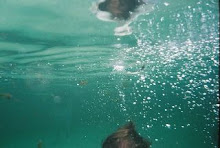"It is the people, caught in this web of counterproductive systems who must seek survival in the hopeless spaces available. They react in many ways, just as we would. They strike out, in anger, just as some of us would. They create productive , phoenix-like new ventures and initiatives, as some of us would. They despair and retreat into addictions as some of us would. They are normal people in an abnormal world, surrounded by expensive, costly helping systems that are the walls that bound their lives. To defy those walls, they must live abnormal lives - often productive, sometimes destructive, always creative." p.146
"If we are to restore the stepping stones from low-income neighborhoods into the center of society, we must face these facts:
1. The foundation stones of reform are economy and community.
2. The human service system can never substitute for these two resources.
3. The great public support systems cannot do their work if the primary foundations are eroded.
For policymakers, the alternative to ever-growing incarceration is clear. First, there must be a relentless focus upon initiatives that regenerate income and work. This regeneration will require relocating many resources from unproductive service systems to economy - enhancing local activities. Second, there must be a new committment to enhancing the powers of local associations, churches, and neighborhood organizations as the principal agents of support and problem solving.
These two standards command a review of all public programs, testing them agains these policy principles:
1. Does the public investment increase the income or the economic opportunity of the person of low income?
2. Does the public investment support the local community and its organizations and associations in doing the basic work that needs to be done?
Finally, to act on these principles will require hard choices. We are a society coming to grips with the recognition that our resources are limited. We cannot invest in growing human services and correctional systems while increasing investments in economy and community. Indeed, should we invest ever more in failed service and correctional systems, the economic and community stepping stones to a viable society will vanish under the rising tide of the waters of hopelessness." p.148-149
"Those who seek to institute the community vision believe that beyond therapy and advocacy is the constellation of community associations. They see a society where those who were once labeled, exiled, treated, counseled, advised, and protected are, instead, incorporated into community, where their capacities, gifts, and fallibilities will allow a network of relationships involving work, recreation, friendship, support, and the political power of being a citizen.
The community experience involves:
Capacity - half-full
Collective effort
Informality
Stories
Celebration
Tragedy
We all know that community must be the center of our lives because it is only in community that we can be citizens. It is only in community that we can find care. It is only in community that we can hear people singing." p.172


